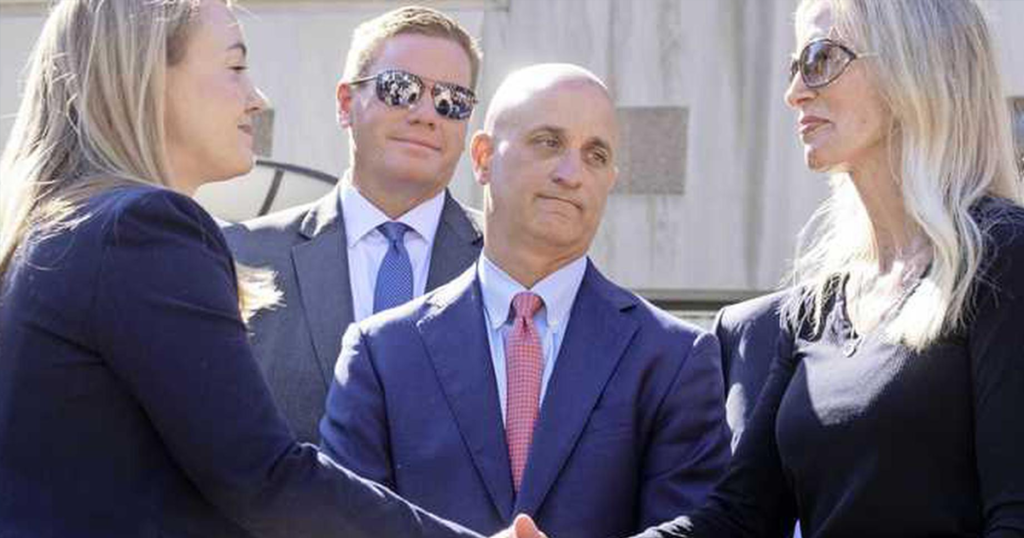An important factor in Joran vans der Sloot’s confession about the 2005 Aruba murder of Natalee Holloway was the plea deal that US authorities offered him on charges of wire fraud and extortion. Legal experts believe that the plea agreement was crucial in providing the Holloway family with peace, even though it is unlikely that he will face legal consequences for the death of the Alabama boy.
Van der Sloot’s confession was made public after he entered a guilty plea in federal court for extortion and fraud involving Holloway’s family. He acknowledged trying to demand $250,000 from the family in return for knowledge of Holloway’s whereabouts.
On Wednesday, Natalee’s mother, Beth Holloway, stated that “it’s over.” My daughter’s murder is no longer being investigated involving Joran van der Sloot. The murderer is him.
However, because Aruba’s 12-year statute of limitations for homicide has passed, van der Sloot, a Dutch citizen, is unlikely to be prosecuted for the murder. Furthermore, the criminal inquiry in the Caribbean Island nation is not within the authority of the United States, which does not have a statute of limitations for homicide.
Van der Sloot consented to divulge all of the details he knew regarding Natalee Holloway’s disappearance as part of the plea deal in the United States. During this procedure, known as proffer, a defendant gives prosecutors specifics about an offense.
Ben Grunwald, a professor at Duke University School of Law, believes that one of the prosecution’s main objectives was probably to get van der Sloot to confess. Families and loved ones of the victims would feel satisfied with this.
Van der Sloot’s plea deal stipulates that he will serve his current 28-year sentence in Peru for the 2010 murder of Stephany Flores in addition to his 20-year jail term for extortion and wire fraud. He was provisionally granted entry into the United States by Peruvian officials in June to appear in court on extortion and wire fraud allegations.

Defendants frequently obtain something in exchange for admitting guilt during the plea-bargaining process, such as a reduced sentence or a dismissed charge, which needs to be accepted by a judge. It’s possible that van der Sloot avoided receiving a second sentence in which he would have had to spend 20 more years in federal prison in the US after serving his time in Peru.
Joran Van der Sloot:
According to Grunwald, van der Sloot did not give the confession without expecting something in return. He was taken aback to see that van der Sloot had been given a concurrent sentence, which could have been his reward for the confession.
Van der Sloot was found guilty of murder in addition to receiving an extra 18 years in jail in Peru in 2021 for smuggling cocaine into his cell. Nonetheless, until a life sentence is imposed, Peruvian law caps jail terms at 35 years.
Van der Sloot is therefore expected to leave the Peruvian prison in 2045 and is unlikely to come back to the US to serve out his sentence for the federal counts. Legal experts predict that after his release, he will probably be deported back to his native country.
Natalee Holloway, an Alabama resident, vanished in May 2005 while on a trip to Aruba to celebrate her secondary school graduation. She was leaving a nightclub with Joran van der Sloot and two other people when she was last seen.
In connection with Holloway’s disappearance, the local police detained van der Sloot and the Klope brothers’ multiple times before releasing them. But because there was insufficient proof, the Aruban Public Prosecutor’s Office decided to drop the cases against them in December 2007.
Van der Sloot confessed to attacking Holloway after she rejected his overtures, and he disposed of her body in the ocean, according to a transcript of a conversation with his lawyer. Holloway’s body was never discovered, and an Alabama judge ruled her legally deceased in 2012.
Judge Anna Manasco of the US District Court took Holloway and Flores’ murders into account while determining van der Sloot’s sentence. Additionally, the plea deal forbids US federal prosecutors from utilizing any information or proof from van der Sloot’s confession against him in their probe.
The strong evidence against van der Sloot may have led to a harsher prison term, so it’s probable that his lawyer encouraged him to take the plea bargain rather than facing a trial for the extortion and fraud counts. It’s possible that the prosecution thought about preventing Holloway’s family from witnessing her death in a trial that would take place several years after her abduction.
Also Read: House Speaker Election: GOP Considers Expanding Acting Speaker’s Powers if Jordan Falls Short Again


Leave a Reply